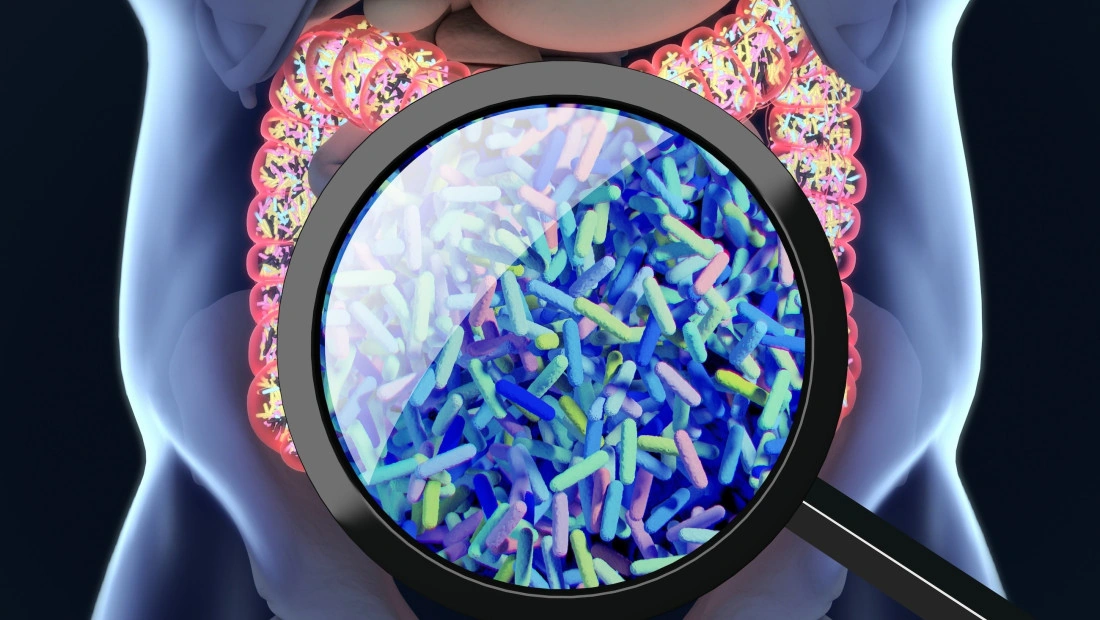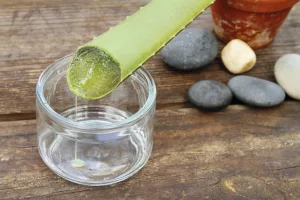Most of us think about pesticides only when we see a spray can or hear about a farmer’s field, but the truth is they can end up right inside the very place that keeps us alive – our gut. In the next few minutes I’m going to walk you through what pesticide toxicity gut actually means, how it shakes up the tiny microbes that call your intestine home, what that could mean for your day‑to‑day health, and what simple steps you can take right now. Grab a cup of tea, settle in, and let’s untangle this together.
What Is Pesticide Toxicity?
How do pesticides reach our intestines?
Pesticides can hitch a ride on the food we eat, the water we drink, and even the dust that settles on kitchen surfaces. After a bite of an apple or a sip of tap water, residues travel through the stomach and land in the colon where the bulk of our gut microbes live. A 2024 observational study in Pesticide exposure and the microbiota‑gut‑brain axis showed that even low‑level, chronic exposure can accumulate in the gut over years.
Which pesticides are most likely to affect gut bacteria?
Not all chemicals are created equal. Some of the heavy hitters that have repeatedly shown up in research include:
| Pesticide | Common Use | Gut Impact (studies) |
|---|---|---|
| Atrazine | Herbicide on corn & wheat | Reduces Bacteroidetes diversity (Gut Microbes 2023) |
| Chlorpyrifos | Insecticide on fruit | Triggers oxidative stress in colonocytes (Nature Comm. 2025) |
| Permethrin | Home pest control | Alters SCFA‑producing bacteria (Frontiers 2021) |
| DDT | Legacy pesticide, still in soils | Disrupts Lactobacillus growth (OSU atlas 2025) |
For a deeper dive into how these chemicals interact with the microbial community, check out our article on gut microbiome pesticides.
What does “toxicity” really mean for gut cells?
When we talk about toxicity here, we’re looking at three main things:
- Oxidative stress: Chemicals generate free radicals that damage the lining of the intestine.
- Barrier disruption: Tight‑junction proteins loosen, making it easier for toxins—and even unwanted microbes—to slip into the bloodstream.
- Microbial imbalance (dysbiosis): The harmonious mix of bacteria gets thrown off, leading to overgrowth of harmful species.
According to Sharma et al. (2023) in Gut Microbes, these changes can set the stage for chronic inflammation and a host of downstream health issues.
Gut Microbiome Disruption
Which bacterial families are most vulnerable?
The gut hosts hundreds of species, but a handful seem especially sensitive to pesticide exposure. Studies repeatedly flag reductions in Bacteroidaceae and Lactobacillaceae, while some opportunistic groups like Enterobacteriaceae can blossom. The Ohio State “atlas” of pesticide‑bacteria interactions (Nature Communications, 2025) mapped over a dozen compounds and found that Atrazine and Chlorpyrifos consistently suppressed SCFA‑producing Faecalibacterium.
What metabolic pathways get altered?
Short‑chain fatty acids (SCFAs) such as butyrate, acetate, and propionate are the bread and butter of a happy gut. They fuel colon cells, regulate immunity, and even signal the brain. When pesticides knock down the microbes that churn out SCFAs, you see a dip in these metabolites, which in turn can lead to:
- Weaker gut barrier
- Heightened inflammatory markers
- Potential mood swings via the gut‑brain axis
The 2021 Frontiers review on “Health Effects of Pesticides Based on Host Gut Microbiome and Metabolomics” highlighted this exact cascade, linking lower SCFA levels to insulin resistance and early‑stage obesity.
Can some gut bacteria degrade pesticides?
Good news: a few hardy microbes actually turn certain pesticides into harmless by‑products. The OSU team identified Eubacterium limosum as a “chemical recycler” for Chlorpyrifos. In mouse models, mice colonized with this strain showed 30 % less gut inflammation after pesticide exposure.
Want to read more about these bacterial heroes? Take a look at our guide on pesticides gut bacteria.
Is there a gut‑brain connection?
Yes, and it’s a fascinating—and sometimes worrisome—one. When pesticides upset the gut microbiome, they can also affect the production of neurotransmitter precursors like tryptophan. A 2023 ISME Journal article showed that organophosphate exposure altered the microbiota‑gut‑brain axis, amplifying anxiety‑like behavior in rodents. While we’re far from saying “pesticides cause anxiety,” the link reminds us that gut health is central to overall wellbeing.
Health Outcomes Linked
Irritable Bowel Syndrome (IBS) & functional GI disorders
One of the clearest clinical signals is the association between pesticide exposure and IBS. A meta‑analysis of epidemiological studies found that individuals with higher pesticide residues in urine were 1.6 times more likely to report IBS symptoms. As the reference snippet says, “Pesticide exposure has been linked to other adverse health impacts on the gut, including irritable bowel syndrome (IBS).”
Metabolic disturbances (obesity, diabetes)
When SCFA production drops, the gut’s ability to regulate blood sugar and fat storage weakens. Long‑term studies have observed higher fasting glucose and increased waist circumference in populations with chronic pesticide exposure—particularly in agricultural communities.
Neurodevelopmental effects in children
The 2022 Frontiers Microbiology paper on “Chronic Effects of Dietary Pesticides on the Gut Microbiome and Neurodevelopment” showed that prenatal pesticide exposure correlated with altered gut bacterial composition in infants, which in turn was linked to reduced cognitive scores at age two. While genetics play a big role, the gut environment appears to be a modifiable factor.
Immune dysregulation & inflammation
Gut barrier breakdown allows bacterial fragments (like LPS) to slip into the bloodstream, triggering systemic inflammation. This “leaky gut” scenario is a cornerstone of many chronic diseases, from autoimmune arthritis to certain skin conditions.
Probiotic Protection Options
Which probiotic strains showed protective effects?
Animal studies, especially the recent OSU mouse experiment, highlighted a few promising candidates:
- Lactobacillus rhamnosus GG – reduced colon inflammation by 45 % after Chlorpyrifos exposure.
- Bifidobacterium longum – restored SCFA levels and helped maintain barrier integrity.
- Eubacterium limosum – actively degraded pesticide molecules.
Read more about the science behind these strains in our piece on probiotics pesticides.
How to choose a pesticide‑resistant probiotic?
Not every supplement is created equal. Look for products that:
- Specify the exact strain (e.g., L. rhamnosus GG).
- Provide ≥10 billion CFU per serving.
- Are third‑party tested for purity and stability.
- Reference human or animal studies on pesticide mitigation.
If you’re uncertain, ask your doctor or a registered dietitian—especially if you have underlying health conditions.
Dietary strategies to lower pesticide load
Beyond probiotics, simple food habits can cut your exposure:
- Wash fresh produce thoroughly; a quick vinegar soak helps dissolve residues.
- Peel fruits and vegetables when possible (e.g., carrots, apples).
- Choose organic for the “dirty dozen” (the list of produce most likely to carry pesticide residues).
- Drink filtered water—many filters remove organophosphate traces.
For a quick reference on how chemicals impact gut health, see our article on gut health chemicals.
When to consider medical testing?
If you suspect chronic exposure (e.g., you work in agriculture or live near a heavily sprayed field), you might want a stool‑microbiome analysis. Companies now offer affordable sequencing kits that give you a snapshot of bacterial diversity and functional pathways. Pair those results with a blood test for pesticide metabolites (often measured as organophosphate metabolites) and you’ll have a clearer picture to discuss with a healthcare professional.
Research and Future Directions
What are the biggest knowledge gaps?
Most of the high‑quality data come from animal models or short‑term human studies. We still need:
- Longitudinal cohort studies tracking pesticide exposure and gut health over decades.
- Standardized metrics for “dose” that consider diet, water, and inhalation routes.
- Better understanding of how genetics influence susceptibility.
Emerging technologies (metagenomics, AI‑driven predictions)
Modern shotgun metagenomics can identify not just who’s there, but what they’re capable of doing—like breaking down chlorpyrifos. AI models are now being trained on large datasets to predict which bacteria will thrive or falter when a new pesticide hits the market. This could lead to customized probiotic “prescriptions” based on your personal exposure profile.
Potential regulatory shifts
Both the EU and the U.S. EPA have started revisiting safe‑daily intake levels for organophosphates, incorporating gut‑microbiome data into risk assessments. If you follow the news, you’ll notice tighter limits on residues in produce over the next few years.
How readers can stay informed
Science moves fast, but you don’t have to chase every journal. Subscribe to reputable newsletters (e.g., the American Gastroenterological Association), set Google Alerts for “pesticide gut microbiome,” and keep an eye on open‑access repositories like the OSU pesticide‑bacteria atlas, which updates quarterly.
Conclusion
We’ve covered a lot: what pesticide toxicity gut actually means, how it reshapes the tiny ecosystem inside you, the health ripples that can follow, and practical ways you can protect yourself with diet, probiotics, and smart testing. The bottom line? Your gut is resilient, but it needs a little help when modern chemicals come knocking. By staying curious, making informed food choices, and maybe adding a gut‑friendly probiotic to your routine, you can give your microbiome the best chance to stay balanced.
Feel free to explore the linked resources for deeper dives, and remember—your gut is talking to you all the time. Listen, nourish, and give it the support it deserves.

























Leave a Reply
You must be logged in to post a comment.